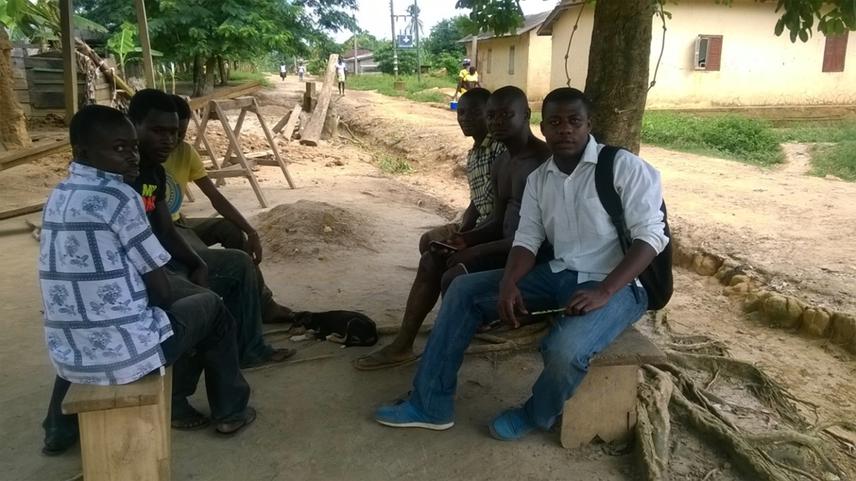Kingsley Bekoe Ansah
Other projects
21 Sep 2015
Collaborative Management of the Atewa Range Forest Reserve in Ghana for Co-Benefits of Conservation and Enhancement of Livelihoods
23 Nov 2016
Enhancing Conservation and Livelihood Support Arrangements for Securing Atewa Range Forest Reserve
8 Mar 2018
Scaling Up Actions for the Conservation and Livelihood Support Arrangements for Securing Atewa Forest Reserve
The project aims to contribute to the sound development and conservation of Atewa Range Forest Reserve by developing and testing tools for ecosystem assessment and facilitating community sensitization on conservation.

Atewa Range Forest Reserve is one of the two upland evergreen forest types in Ghana. It covers an area of 232 km2 provides the microclimate condition necessary for agricultural activities such as cocoa farming; absorbs and stores green house gases including carbon dioxide thereby contributing to the mitigation of global warming. The mountains of the forest reserve is the headwaters for three important water bodies in Ghana which supplies drinking water to two thirds of the population of the capital (Accra). Atewa is also home to many rare and endangered plant and animal species, thus containing rare genetic pool. However, it faces encroachment from illegal timber loggers, mining, over exploitation of the non-timber forest products which threatens the habitat and survival of the many endangered plants and animal species. While the government formulated a management plan in 2006 to halt this trend, the degradation continues.
The Community Ecosystem Management Project (CEMP) for Atewa is therefore designed to make use of the ecosystem approach to enable communities to holistically assess the health of the reserve and thereby design solutions in a management plan that helps to conserve vital flora and fauna species while it still contributes to their welfare and livelihoods. Specifically, the project will:
1) develop and test community based tools and systems to help communities to identify, assess and quantify the ecosystem services that is provided by Atewa using the concept of ecosystem services assessment (applied to the local context);
2) develop of a management plan which is localised, specific to the community and based on the needs of the community and the capacity of the ecosystem. The management plan will be based on the results of the ecosystem assessment and sustainability analysis;
3) document and dissemination of the tools, systems, processes and lessons learnt from the pilot to be used by other communities fringing Atewa and for other forest reserves in Ghana.
The outcome of these interventions will be include a conserved Atewa Range Forest Reserve that is conserved, with limited cases of encroachment and illegalities providing safe habitat for flora and fauna of diverse nature while contributing to the enhancement of the livelihoods of the communities that fringe the reserve; copies of assessment framework and procedures and flyers for education and awareness creation and finally community and focus meetings that lead to will lead to greater coherence and understanding among community members for the conservation of Atewa.